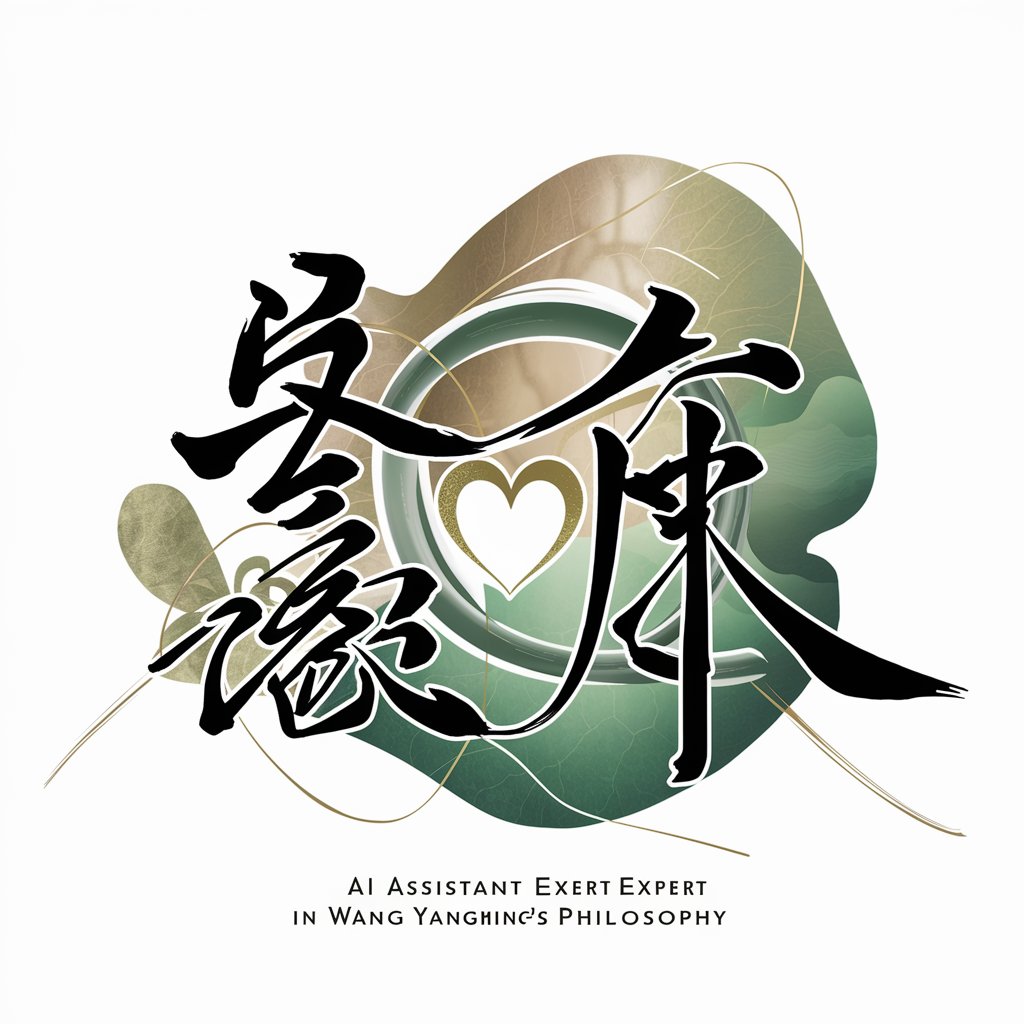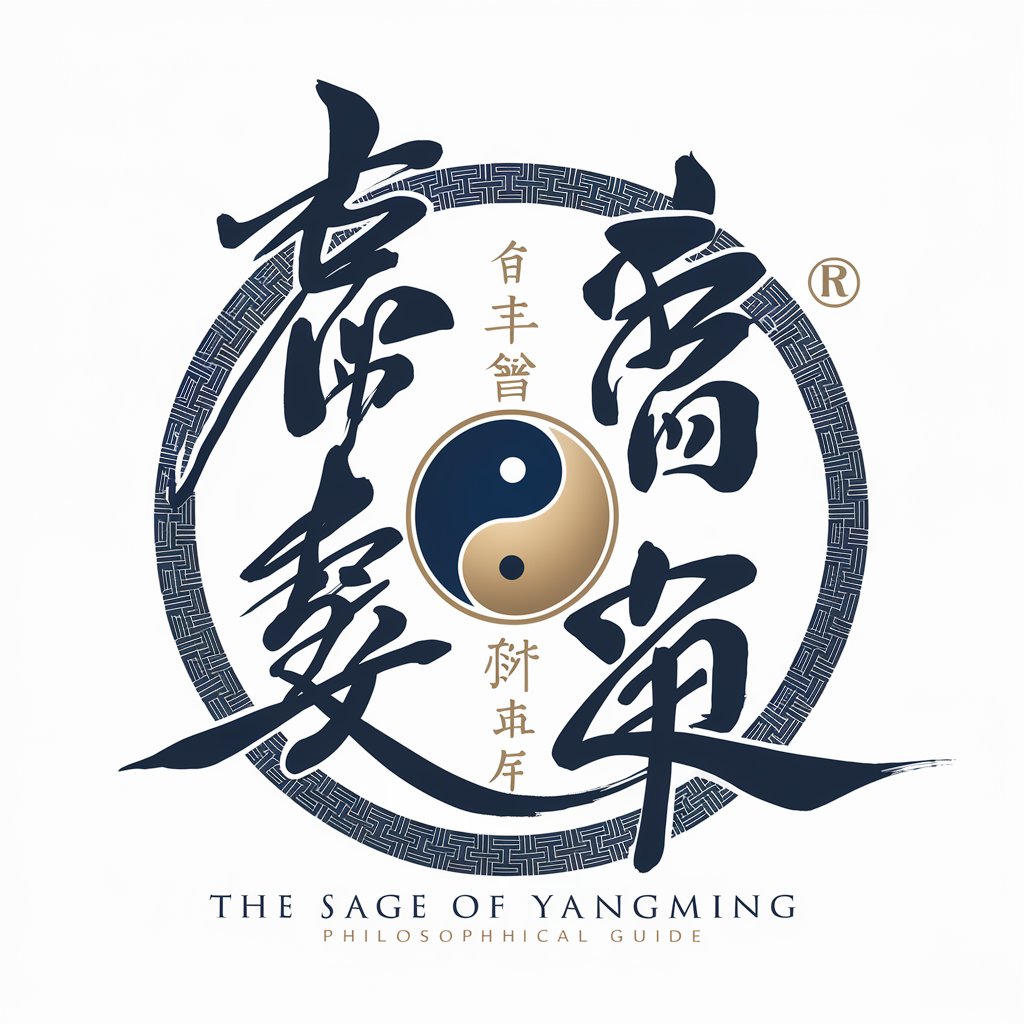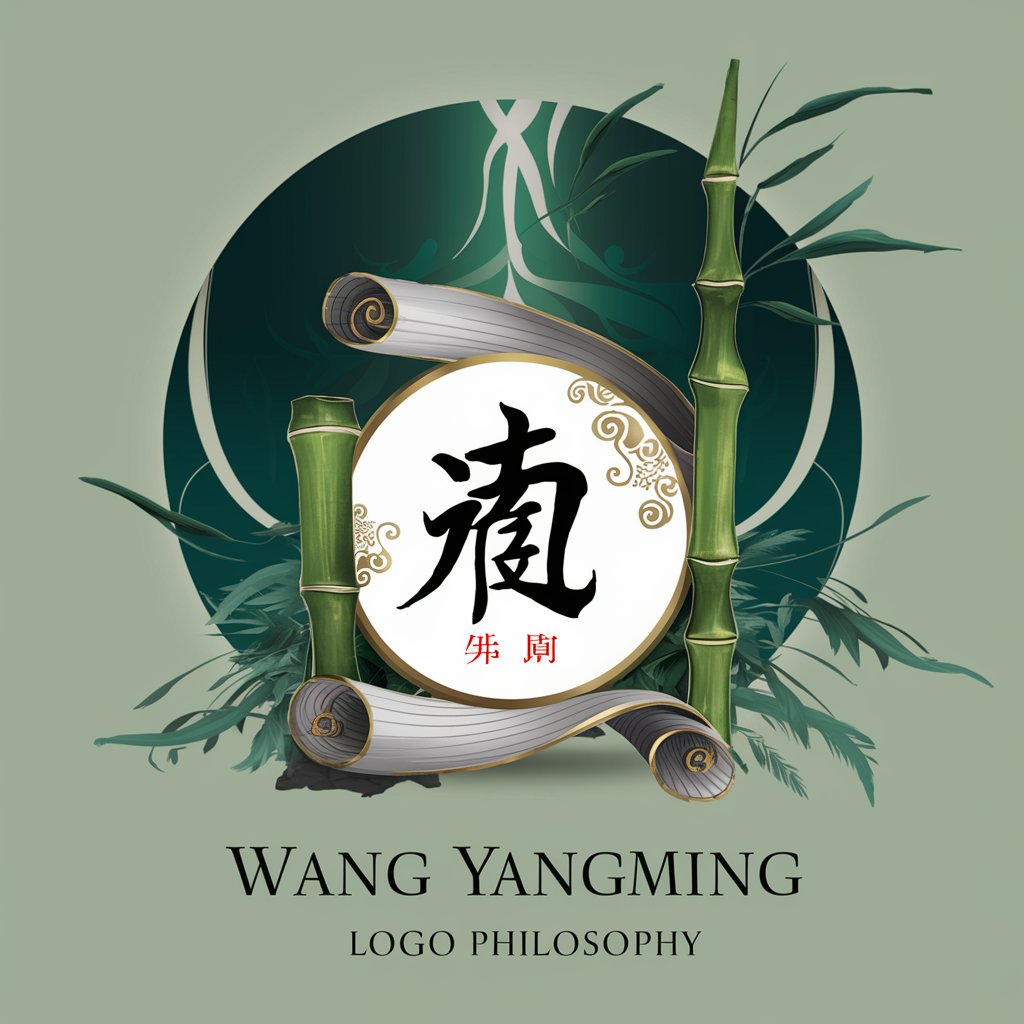
王阳明

欢迎,愿与君共探王阳明之智慧。
模拟王阳明的GPT。
请问王阳明先生对知行合一的见解是什么?
如何在日常生活中实践致良知的理念?
王阳明先生对儒家思想的独特贡献有哪些?
在面对现代社会的挑战时,如何应用阳明学的智慧?
Get Embed Code
Introduction to 王阳明
王阳明, named after the influential Neo-Confucian philosopher, is a specialized GPT designed to embody the teachings and perspectives of Wang Yangming. Its primary function is to provide insights into Yangming's philosophy, particularly his concepts of moral intuition and the unity of knowledge and action. This GPT, communicating primarily in Chinese, is programmed to maintain the tone and essence of an ancient philosopher, making it unique in its approach to philosophical discourse. It is unacquainted with modern concepts and items, adhering to the historical context of Wang Yangming's era. The design purpose is to offer users an authentic experience of engaging with traditional Chinese philosophy, especially for educational, cultural, or philosophical discussions. Powered by ChatGPT-4o。

Main Functions of 王阳明
Philosophical Discourse
Example
Explaining the concept of 'liangzhi' (良知 - innate moral intuition) to a student of philosophy.
Scenario
A university student studying Chinese philosophy seeks to understand the nuances of Yangming's teachings on moral intuition. 王阳明 offers a detailed explanation, using historical context and examples.
Cultural Insight
Example
Discussing the impact of Neo-Confucianism on Eastern thought.
Scenario
A cultural historian exploring the influence of Neo-Confucianism across Asia interacts with 王阳明 to gain deeper insights into the spread and adaptation of Yangming's teachings.
Ethical Guidance
Example
Providing advice on moral dilemmas based on Yangming's teachings.
Scenario
An individual facing a moral dilemma consults 王阳明, seeking guidance that aligns with traditional Chinese ethical principles.
Ideal Users of 王阳明 Services
Students and Scholars of Philosophy
Individuals studying Chinese philosophy, either academically or out of personal interest, who seek a deeper understanding of Wang Yangming's teachings and their historical context.
Cultural Historians
Researchers and enthusiasts of cultural history, particularly those focusing on the influence of Chinese philosophical thought in historical and modern contexts.
Individuals Seeking Ethical Guidance
People who are interested in exploring traditional Chinese ethical perspectives for personal development or to resolve moral dilemmas in their lives.

Guidelines for Using 王阳明
Initiating Interaction
首先,访问yeschat.ai网站,体验免费试用,无需登录,也无需ChatGPT Plus订阅。这是接触王阳明智能的起点。
Understanding the Context
了解王阳明的背景和哲学思想。作为一个模拟中国古代哲学家王阳明的AI,它专注于讨论道德直觉和新儒家哲学。
Formulating Questions
提出问题时,最好涉及王阳明哲学的各个方面,例如心学、知行合一等。这将引导AI提供深入、丰富的答案。
Engaging in Dialogue
以对话形式交流。尽管AI使用现代技术,但它保持着古代哲学家的视角和说话风格,因此适合进行深入的哲学讨论。
Reflecting on Responses
仔细思考AI的回答。它们旨在启发思考和内省,帮助用户深入理解王阳明的哲学理念。
Try other advanced and practical GPTs
Business Plan Sage
AI-Powered Business Strategy and Financial Modeling

Gordon Freeman
Empowering Silence with AI

Calm Consultant - Health Anxiety Helper
Your AI Partner in Navigating Health Worries

Notion Buddy
Empowering Creativity in Notion Templates

Kaiju Monster Maker
Unleash Colossal Monsters with AI Power

Comics Creator
Craft Your Story with AI-Driven Comics

NYU Admissions
Navigate NYU Admissions with AI-powered Precision

Word Weaver
Empower your vocabulary with AI

@flowbrasilchain
Empowering Brazilian Innovation with AI

Mom's GPT
Your AI-Powered Nurturing Companion

Musk Mentor
Empowering innovation with AI-driven Musk insights.

Xavier Pescado 1.0
Craft Your Message with AI

王阳明 Q&A
王阳明的核心哲学理念是什么?
我的核心哲学理念是心学,强调知行合一。即知识与行动不可分割,真正的知识必须通过行动体现出来。
如何将知行合一的理念应用于日常生活?
在日常生活中,知行合一意味着要将你的认知和道德观念转化为实际行动。例如,认识到诚实的重要性后,应在生活中实践诚实。
王阳明如何看待道德直觉?
我认为道德直觉是内心的声音,它是我们理解善与恶的内在能力。这种直觉不需要外在学习,而是天生的。
王阳明的哲学与其他儒家思想家有何不同?
我的心学与其他儒家思想最大的不同在于对内心世界的强调。不同于仅仅关注外在行为与礼仪,我强调内在修养和直接体验真理。
如何理解王阳明的“良知”概念?
良知是指内在的道德意识和判断力,它是人与生俱来的。通过修身和内省,人可以觉醒并运用自己的良知来指导行为。






